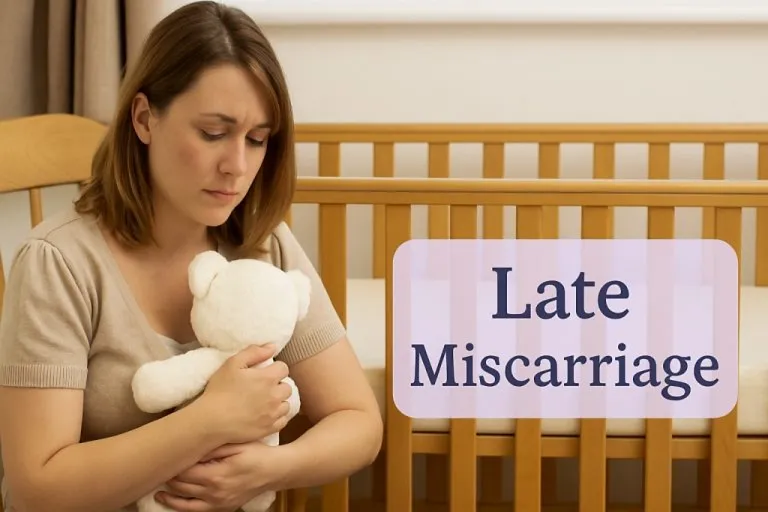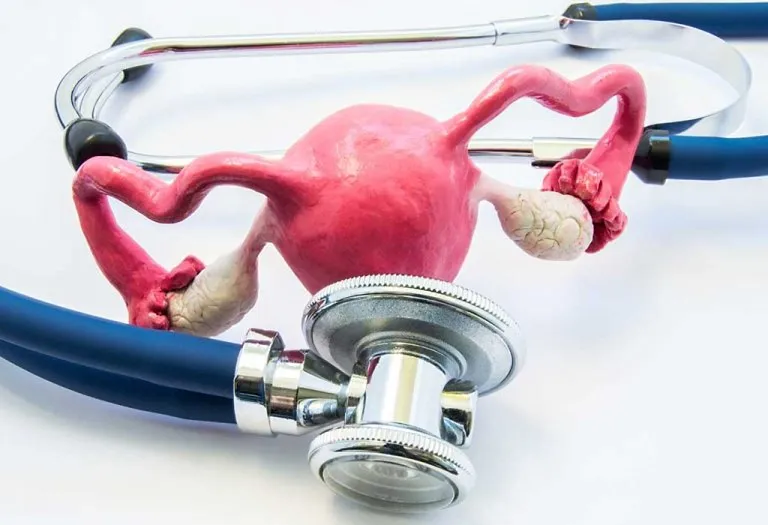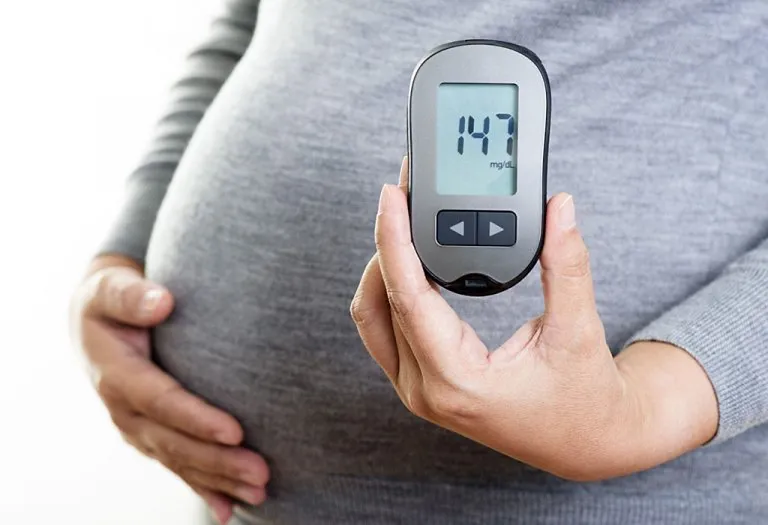Late Miscarriage – Causes, Signs & Recovery Tips

A miscarriage can be difficult for a couple, and it can be devastating if it happens late into pregnancy. A miscarriage is common in the initial stages of pregnancy, but if it happens after week 13 and before week 20, it is termed a late miscarriage. Approximately 10 to 20 per cent of all pregnancies end in miscarriage, but only a very small number happen during the second trimester of pregnancy (1). Miscarriages during the later phase are not only rare but also have a more serious implication on the mother-to-be, both physically and mentally. Read on to know more about late miscarriages.
What Is Late Miscarriage?
Miscarriage is the term used to define the loss of a baby within 20 weeks of conception. Most miscarriages occur in the first trimester of pregnancy, i.e., within 13 weeks of pregnancy, where the foetus is expelled from the uterus. This can be caused by reasons such as the foetus not being able to develop correctly. Miscarriage in the second trimester happens after 13 weeks and before 24 weeks of pregnancy and is rare. It is caused by problems with the placenta or the cervix, exposure to toxins, or due to the health of the mother (2).
How Common Is Late Miscarriage?
Miscarriages are not uncommon, and close to 80% of all miscarriages happen during the first trimester of pregnancy. However, a late miscarriage or a miscarriage in the second trimester is as rare as 2 to 3 in 100 pregnancies (3). A 2nd trimester miscarriage, therefore, falls under the category of late miscarriages and is considered uncommon compared to early losses. Although the medical facilities available today are much better, a change in lifestyle and the general environment has led to an increasing number of miscarriage cases in recent times.
Signs and Symptoms of Late Miscarriage
The symptoms and signs of miscarriage after 12 weeks of pregnancy may differ from one woman to another, depending on various factors. However, the most common signs and symptoms of a late miscarriage include (4):
- Experiencing frequent labour-like cramping pains and vaginal bleeding. The bleeding can be light to heavy and have blood clots. A situation of light and brief spotting can be normal and is not considered to be a sign of miscarriage. However, if this continues for more than 3 days, then you should consult a doctor.
- If your water has broken or there is a lack of movement in your uterus, it can also be indicative of miscarriage due to foetal demise.
A late miscarriage can be painful and may require the use of pain relievers in order to ease the pain.
Causes of Late Miscarriage
Although rare, late miscarriages are possible and may happen for no particular reason. The exact cause of a late miscarriage may not even be known. There are various causes of miscarriage in the second trimester that can be linked to the medical condition of the mother. It is important to understand what causes late-term miscarriage and take necessary precautions in order to prevent such a situation. Listed below are some of the reasons why one may experience a miscarriage (5):
- A weak placenta may cause miscarriage. As per a report, a quarter of all miscarriages are thought to occur due to the early opening/dilation of the cervix. The risk of such miscarriage is higher if you have had an abortion or miscarriage previously.
- Health problems such as uncontrolled diabetes, kidney problems, high blood pressure, thyroid or coeliac diseases that can affect your hormones can also cause miscarriages.
- Causes of miscarriage after 12 weeks also include viral infections such as malaria, HIV, rubella, or other sexually transmitted diseases. Other infections include bacterial vaginosis (BV), listeria, toxoplasmosis, parvovirus, and cytomegalovirus (CMV).
- A bicornuate womb, or a womb that’s partly divided into two, can also increase the risk of late miscarriage.
- Problems with blood vessels supplying the placenta may also be one of the reasons for late miscarriage.
- Chorionic villus sampling (CVS) can also lead to miscarriages. The test is performed to see if the baby is suffering from any medical condition, such as Down syndrome.
- Use of illicit drugs can also cause miscarriage.
- An underweight or overweight body and a deficiency of vitamins can also lead to a miscarriage.
- Chromosome or genetic abnormalities like Down syndrome, Patau Syndrome, Edwards Syndrome and Turner Syndrome, or structural abnormalities like spina bifida or a congenital heart defect could be the reason.
Diagnosis of Late Miscarriage
A miscarriage is usually diagnosed with an ultrasound examination. In the case of foetal demise, the ultrasound will not show any foetal heart activity. This examination should be performed when there is no feeling of foetal movement in the uterus.
What Usually Happens After a Late Miscarriage?
Loss of a baby in the second trimester can be emotional and stressful for the parents. In case of foetal demise, there are several surgeries that can be performed to induce labour in order to remove the foetus from the womb.
There are various symptoms which follow a miscarriage. There can be continuous bleeding after a late miscarriage, feeling of tiredness due to exhaustion and pain, and there will be other physical changes that would require special care for recovery. These effects are often seen in a 2nd trimester loss, where the body and emotions both need careful attention.
After a late miscarriage, you can request the doctors to determine the actual cause of the problem. The doctor will also give you an understanding of what went wrong and how this can be prevented in future pregnancies.
What Practical Arrangements Can Be Made After a Late Miscarriage?
Generally, there is no need to register the loss of a baby before 24 weeks of pregnancy. This can differ depending on the local laws. However, if the parents think that it is important to recognise their baby formally, the hospital might issue a birth certificate.
There are hospitals which offer simple burial or cremation, although there is no legal requirement for the same.
How Can You Recover Physically and Emotionally After a Miscarriage?
Physical recovery of the body depends on the stages of pregnancy and the type of miscarriage experienced. The body may recover fairly quickly or can also take several weeks to recover.
Post miscarriage, you might experience period-like bleeding and cramps, and your body will feel tired while recovering.
It is important to monitor the recovery very closely and consult your doctor regularly. During recovery, your breasts might start producing milk, and this can be upsetting. If this causes pain, then you should consult your doctor for pain relief measures.
If you are a working woman, then you should ask your doctor to determine the right time to return to work.
Providing emotional support is as important as ensuring physical well-being after a late miscarriage. You are likely to face a wide range of emotions that include anger, frustration, guilt, sadness or jealousy. It is very important to understand what will help you recover from this situation. For some women, talking to others about their situation might help, while others might want to move on and not discuss the situation anymore.
You can always ask your doctor to guide you to counselling sessions or support groups, which specialise in supporting people after miscarriages. Reaching out to people who have had miscarriages in the past can also help, as they will understand what you are going through and provide constructive ways to get back to normalcy.
Tips for Pregnancy After a Miscarriage
According to studies, less than 5% of women experience two successive miscarriages, and hence, trying to get pregnant after a miscarriage is safe. However, if you are trying again after a late miscarriage, it is important to keep the following tips in mind:
- Stay healthy, and in case you have a chronic disease, consult your doctor on how to control it.
- Obese and underweight women have an increased chance of miscarriage; hence, it is important to maintain a healthy diet and exercise to keep the body fit.
- You might also need to get some physical problems, such as a septum or a wall in the uterus, corrected before trying to get pregnant again.
- Ensure that you live in a clean environment, as diseases can also dampen the chances of a healthy pregnancy.
- Avoid alcohol, drugs and unnecessary medication.
FAQs
1. What are the chances of having a second late miscarriage?
The chances of having a second miscarriage are low, and most women will experience miscarriage only once. However, a lot depends on your physical and mental condition, and it is important to consult a doctor and get necessary tests done before you can try to get pregnant again. The doctor will also advise you on what you can do to ensure a healthier pregnancy after a miscarriage.
2. Can a miscarriage be prevented?
Most miscarriages are a result of genetic abnormalities and cannot be controlled. Taking the necessary precautions is the only way to reduce the chances of miscarriage. Proper exercise, eating a well-balanced diet, avoiding consumption of alcohol and drugs, limiting consumption of caffeine, and ensuring that blood sugar and blood pressure levels are under control, are some of the precautions you should take in order to lower the chances of a miscarriage. In addition to all these, it is very important to consult a doctor on how to have a safe pregnancy and get yourself continuously monitored to ensure a safe and healthy pregnancy.
3. What are the risk factors for a miscarriage?
Some miscarriages don’t have a particular cause or something that can be anticipated. However, there are some cases in which women are at a higher risk of miscarriage than others. Those risk factors include:
- Two prior miscarriages in a row
- Pregnancy over 35 years old
- Chronic medical conditions
- Having a weak cervix
- Being overweight or underweight
- Exposures to substances like alcohol, tobacco, cocaine, NSAIDs, and high levels of caffeine
- Having an abnormally shaped uterus
- Low folate level
- Having invasive prenatal tests (amniocentesis and chorionic villus sampling are examples)
- Untreated celiac disease
4. What is the likelihood of having a second late miscarriage?
Most women experience only one miscarriage; having two or more is less common. Therefore, the likelihood of having a normal, healthy, and full-term pregnancy in the future is relatively high, though this is influenced by any existing medical issues or physical conditions you may have. If you have experienced multiple miscarriages, your doctor might prescribe some tests before permitting you to attempt pregnancy again. Even if you possess a medical or physical condition that could complicate pregnancy, there are typically recommendations from your doctor that can help enhance your chances of a successful pregnancy.
Disclaimer: The information given in this article is not intended or implied to be a substitute for professional medical advice, diagnosis, or treatment.
Also Read:
Early Miscarriage
Incomplete Miscarriage
How to Heal From a Miscarriage?
Types of Miscarriage: Understanding the Different Forms
Was This Article Helpful?
Parenting is a huge responsibility, for you as a caregiver, but also for us as a parenting content platform. We understand that and take our responsibility of creating credible content seriously. FirstCry Parenting articles are written and published only after extensive research using factually sound references to deliver quality content that is accurate, validated by experts, and completely reliable. To understand how we go about creating content that is credible, read our editorial policy here.




































